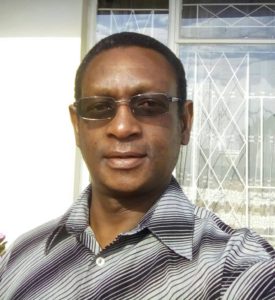
Tendai Ruben Mbofana
Usually, when a country holds the privilege of being the “big brother” in any region, it carries with it the largely uncomfortable, but highly necessarily, responsibility of being a leader – looked up upon by the suffering and subjugated in other nations, whose voices are seldom heard (but, actually brutally quashed) for an advocate in their cause.
In fact, this is hardly a strange phenomenon in our African culture – as whenever there are problems within families, the elders have the role of intervening, in resolving whatever issues are bedevilling their kith and kin, and even calling out and rebuking the offending party.
If, within our African households, there is an individual regarded as losing direction (kurasa hunhu ne tsika) – whether by neglecting and abusing his wife and children, drinking too much, promiscuity, violent or cruel nature, or any such vices – the elders of the family (clan) take it upon themselves to bring him to order… without fear or favor.
As such, it would not be ill-concieved for the people of Africa in general, or the southern African region in particular – who regard themselves as one family – to expect the most powerful nation to play that “big brother” role whenever there are cases of the abuse, repression, and impoverishment of fellow Africans.
Yet, when Ramaphosa was delivering his speech – in which he clearly tried to portray himself as that African “big brother”, advocating for the equitable distribution of COVID-19 vaccines, reformation of the UN Security Council, ending of conflicts on the continent, amongst a whole host of other issues – he made some omissions that I found rather troubling.
Justifiably, he loudly and bravely spoke up for the oppressed and occupied people of Palestine by Israel, and urged the US to remove the remaining economic sanctions on Cuba – but, there was deafeningly worrying silence on the people of Africa, who have been suffering untold and indescribable overbearing subjection, brutality, and impoverishment at the hands of their own governments.
Indeed, Ramaphosa must be given credit for the bold stance he took against Morocco’s illegal occupation of the Saharawi.
However, how about expressing the same sentiments about the people of Zimbabwe – who have never seen a day of reprieve from the incessant and unrelenting painful yoke of oppression by their leaders?
For a country that sits just south of Zimbabwe – and, experiencing the brunt of the Harare administration’s misrule and mismanagement, through the millions crossing the border, mostly illegally, in search of some semblance of decency and dignity – Ramaphosa, surely, is expected to take this issue more seriously.
Furthermore, considering the events of the past week or so – when hordes of Zimbabweans were forcefully returned to their country by South African authorities (after having crossed over illegally), in addition to the furore raised by the decision not to renew special exemption permits – South Africa’s role of the “big brother” could never been more imperative.
Yet, there was the characteristic silence – synonymous with the early 2000’s “there is no crisis in Zimbabwe” notorious statement by another South Africa president, Thabo Mbeki, disingenuously uttered in the midst of a record-breaking humiliating economic disaster (with a November 2008 inflation of 79.6 billion per cent), and unleashing of a reign of terror on opposition supporters by the ZANU PF government.
Maybe, we are expecting too much from Ramaphosa.
If his fellow president, Mbeki, could not see anything amiss and untoward with the Zimbabwean picture in the early 2000s – honestly, why would Ramaphosa see anything wrong with today’s catastrophe?
All he could mention in his “8th January statement” was the need to strengthen border security, in order to keep out criminal elements.
Wow, talk about taking a pain killer to deal with a brain tumor!
Surely, Ramaphosa clearly understands the real reason why his country has been battling with an unsustainable influx of migrants from Zimbabwe for nearly the past two decades – and yet, his solution is a more secure border!
Being a leader comes with huge responsibilities – most of which are unenviable and uncomfortable – but, these need to be faced with unwavering courage and objectivity.
It is not all about traversing the continent and globe, saying all those nice things about fair distribution of COVID-19 vaccines, or reforming the UN Security Council, or freeing the Palestinians, or removing US sanctions on Cuba, or condemning police brutality against mostly people of colour in the US.
Leadership also entails calling out and rebuking your best friend, or younger brother, whenever they do something unacceptable and despicable – more so, when their revolting behavior also negatively impacts one’s own household.
© Tendai Ruben Mbofana is a social justice activist, writer, and social commentator. Please feel free to contact him on WhatsApp/Call: +263715667700 / +263782283975, or Calls Only: +263788897936 / +263733399640, or email: mbofana.tendairuben73@gmail.com
Post published in: Featured

